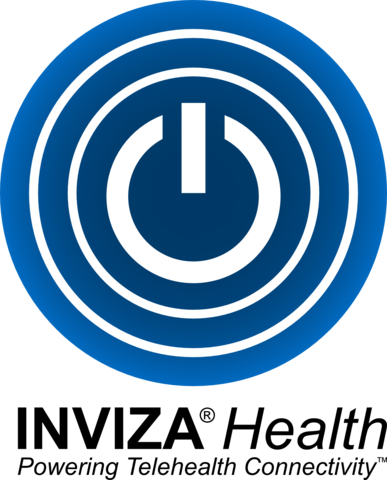CAMBRIDGE, Mass.--(BUSINESS WIRE)--INVIZA® Health, a leader in advanced MedTech solutions, proudly announces the award of a $2.3 million contract by the SEMI Nano Bio Materials Consortium (NBMC) and the U.S. Air Force Research Laboratory (AFRL). The project consisting of $1 million AFRL non-dilutional funds plus cost-share, including $550,000 investment from partner companies and $750,000 angel investment, will propel the development of INVIZA® Health's groundbreaking remote patient-airmen monitoring (RPM-RAM) technologies, integrating sophisticated machine learning (ML) algorithms to dramatically enhance health monitoring capabilities for military and medical applications. Adding edge-based ML will increase embedded sensor (heart rate, heart rate variability “HRV”, respiratory rate, blood oxygen saturation “SpO2”, body temperature, body movements including fall detection, and GPS location) accuracy, enhance cyber security, and reduce the smart insole’s internal wireless sensor electronics power consumption.
To learn more about INVIZA, please visit: inviza.com
Innovative Integration of Machine Learning
Central to this initiative is the enhancement of the INVIZA® CARE M1.0 platform (smart insoles, user app, cloud analytics, web dashboard) through the integration of ML algorithms directly within the wearable’s internal electronics-sensor system. This advanced ML capability enables real-time, on-device processing, crucial for the immediate interpretation of health data and timely decision-making.
Addressing Increased Power Demands
The incorporation of ML into the InvizaSole smart insoles represents a significant technological advancement but also poses challenges due to increased power consumption. To address this, INVIZA is advancing its energy harvesting technology to ensure that these smart insoles can sustain the heightened energy demands.
Advanced Energy Harvesting Solutions
The project includes transitioning from the SmartPower™ energy harvesters (EH) used today to the more potent aluminum nitride (AlN) based piezoelectric thin-film designs (all EH-designs used are patent pending). These next-generation EH’ers can deliver a 20% increase in energy generation per step at only 50% of the original operational thickness needed for thin, comfortable insoles. Such efficiency improvements are crucial for supporting the energy-intensive ML computations without the need for frequent recharging.
Collaboration with Subrecipient and Subcontractor Partners
INVIZA® Health is proud to collaborate with esteemed partners, Quanterion Solutions, GP Plasma, Light-It, and the University of Utah to further enhance the capabilities of the INVIZA® CARE M1.0 platform:
To read the full press release, please click here.

![INVIZA® CARE M1.0 remote patient or airmen monitoring (RPM or RAM) platform, including [1] InvizaSole M1.0 (or simply "InvizaSole") – self-charging, medical-grade smart insoles with vital sign and other sensors and machine learning (ML) algorithms for accuracy; [2] InvizaCare –patient/airmen mobile app with DTx; [3] InvizaCloud – a Secure IoT Operational Planning Environment (SIoTOPE™) cloud platform designed per Department of Defense (DoD) strategies with AI/ML and other analytics and Health Insurance Portability and Accountability Act (HIPAA) compliant data storage; and [4] InvizaPortal – a web dashboard for hospital/HaH-patients or command/wings-groups-squadrons-airmen oversight. (Photo: Business Wire)](https://mms.businesswire.com/media/20240619653209/en/2161162/4/INVIZA-SEMI-NBMC-AFRL.jpg?download=1)
![INVIZA® CARE M1.0 remote patient or airmen monitoring (RPM or RAM) platform, including [1] InvizaSole M1.0 (or simply "InvizaSole") – self-charging, medical-grade smart insoles with vital sign and other sensors and machine learning (ML) algorithms for accuracy; [2] InvizaCare –patient/airmen mobile app with DTx; [3] InvizaCloud – a Secure IoT Operational Planning Environment (SIoTOPE™) cloud platform designed per Department of Defense (DoD) strategies with AI/ML and other analytics and Health Insurance Portability and Accountability Act (HIPAA) compliant data storage; and [4] InvizaPortal – a web dashboard for hospital/HaH-patients or command/wings-groups-squadrons-airmen oversight. (Photo: Business Wire) INVIZA® CARE M1.0 remote patient or airmen monitoring (RPM or RAM) platform, including [1] InvizaSole M1.0 (or simply "InvizaSole") – self-charging, medical-grade smart insoles with vital sign and other sensors and machine learning (ML) algorithms for accuracy; [2] InvizaCare –patient/airmen mobile app with DTx; [3] InvizaCloud – a Secure IoT Operational Planning Environment (SIoTOPE™) cloud platform designed per Department of Defense (DoD) strategies with AI/ML and other analytics and Health Insurance Portability and Accountability Act (HIPAA) compliant data storage; and [4] InvizaPortal – a web dashboard for hospital/HaH-patients or command/wings-groups-squadrons-airmen oversight. (Photo: Business Wire)](https://mms.businesswire.com/media/20240619653209/en/2161162/4/INVIZA-SEMI-NBMC-AFRL.jpg)

